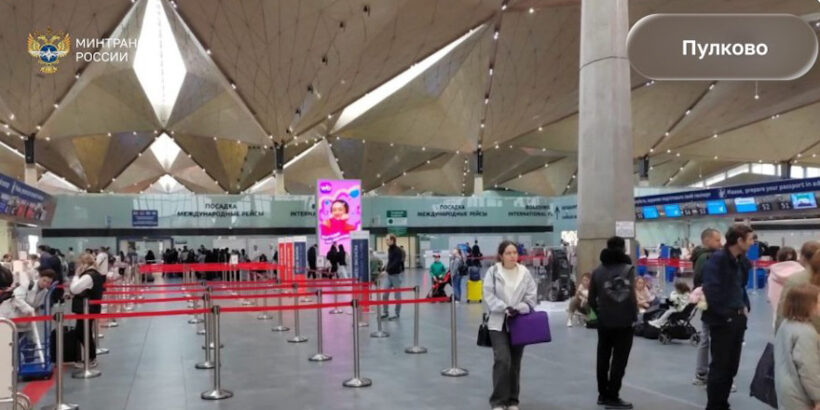Russia’s Ministry of Transport and Rosaviation (Federal Air Transport Agency) continue monitoring domestic air transport operations under temporary airspace restrictions across various regions of the country. These measures stem from flight safety requirements related to external interference and significantly impact the nation’s aviation system operations. According to Rosaviation, the situation remains under control, and airlines maintain adequate resources to operate under current conditions.
In early July, several Russian airports faced temporary restrictions on aircraft arrivals and departures, resulting in numerous flight cancellations and delays. Specifically, Sheremetyevo, Pulkovo, Nizhny Novgorod, and several regional aviation hubs temporarily suspended service for portions of their flight schedules. This created substantial strain on passenger services and required immediate response from both airports and airlines.
To minimize passenger inconvenience, airports increased staffing levels, opened additional check-in counters, and established dedicated service areas for passengers with children and individuals with disabilities. Railway transportation was utilized to compensate for reduced flight availability. Despite operational challenges, coordinated efforts among all market participants and oversight by the Ministry of Transport and Federal Air Transport Agency kept the situation under control while maintaining flight safety as the top priority, according to Rosaviation’s statement.
Aeroflot and Rossiya Airlines were forced to cancel and reschedule hundreds of flights due to schedule adjustments. Data from the evening of July 5 showed 174 flight cancellations at Sheremetyevo Airport (approximately 80% involving Aeroflot Group flights), with 47 flights delayed more than two hours. St. Petersburg’s Pulkovo Airport also experienced temporary restrictions that led to flight cancellations and reroutings.
Schedule adjustments resulted not only from external airspace restrictions but also from weather factors—strong winds in the Sheremetyevo area significantly complicated ground operations and air traffic management. This created high infrastructure stress at airports and disrupted flight schedule reliability.
Passengers reported multiple delays, with some spending more than nine hours at airports. Airlines explained that when flights are cancelled, passengers are rebooked on the next available flights; however, options for earlier departure times remain unavailable.
Mass flight cancellations and delays are already reducing passenger traffic for Russian airlines. Expert estimates suggest that total passenger traffic may decrease by 1.8-6.3% in 2025 compared to 2024 due to aircraft shortages and fleet operation restrictions. Temporary prohibitions and schedule disruptions exacerbate this trend, reducing carrier revenues and increasing operational costs.
Additionally, significant numbers of flight cancellations and delays increase airline expenses for passenger compensation, alternative transportation arrangements, and additional safety measures. This negatively affects customer loyalty and creates pressure on fares and demand.
Meanwhile, the Ministry of Transport and Rosaviation emphasize the importance of strict compliance with federal aviation regulations by carriers, including provision of meals, beverages, and passenger accommodation arrangements during delays. All disputed issues must be resolved in favor of passengers, with special attention given to comfortable service for passengers with children, individuals with disabilities, and veterans.


